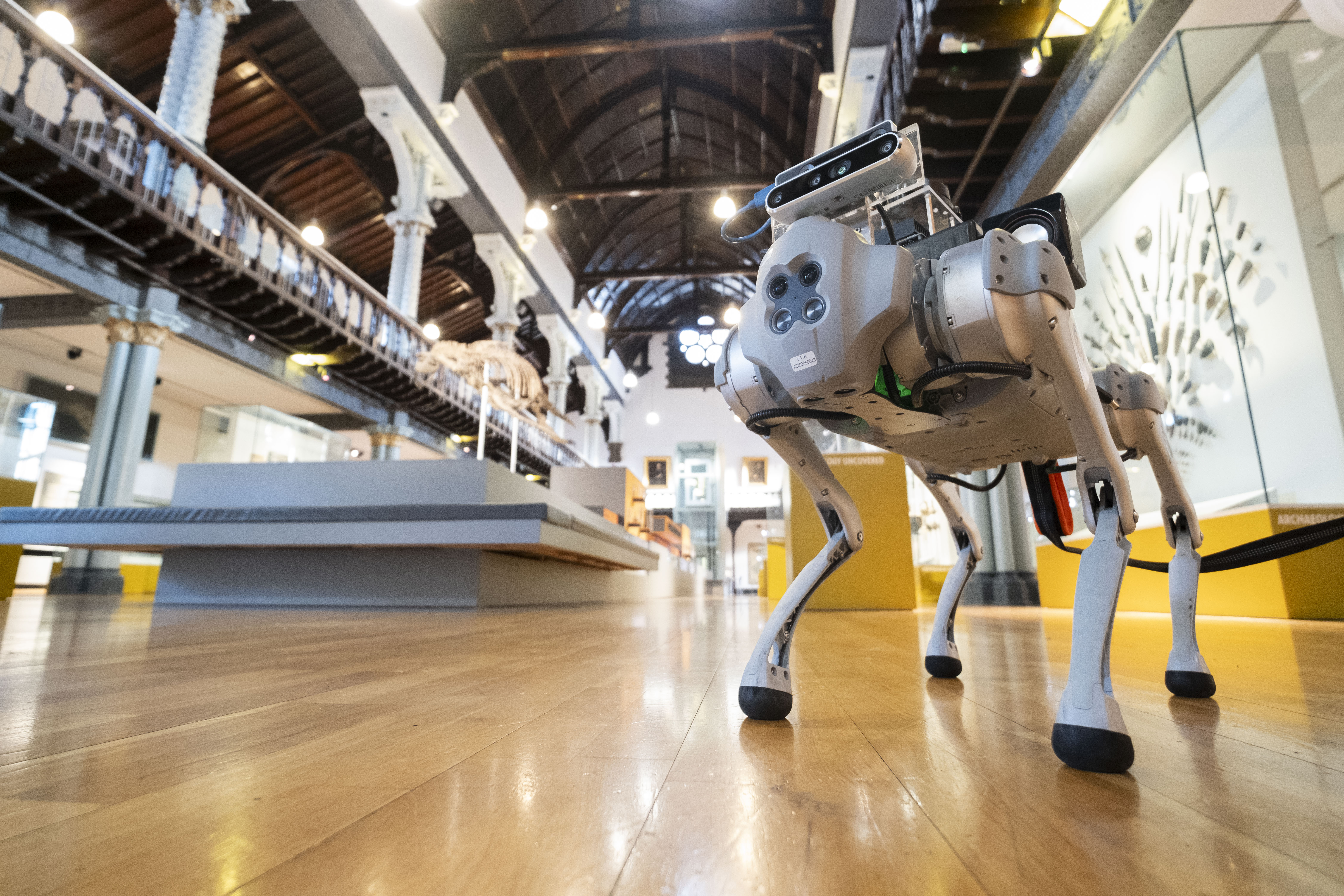Scottish university develops life-changing AI-powered robot for the visually impaired
A Scottish university has developed and tested a robot which could help the visually impaired live their lives more confidently.
The University of Glasgow has developed a AI-power tool which combines cutting-edge technology to process live data,making the world more accessible for blind and partially sighted people.
With 180,000 people in Scotland suffering from significant sight loss – a figure expected to double by 2031 according to the Royal National Institute of Blind People (RNIB) – the new software could be life-changing for many.
The RoboGuide system uses a cohort of sensors to map its surroundings and large language model technology to communicate with its users.
By gathering sensor data in real time, the software is able to devise the best routes between locations, overcoming many challenges often associated with these types of robots, the project’s principal investigator Olaoluwa Popoola, explained.
“One significant drawback of many current four-legged, two-legged and wheeled robots is that the technology which allows them to find their way around can limit their usefulness as assistants for the visually impaired.
“Robots which use GPS to navigate, for example, can perform well outdoors but often struggle in indoor settings, where signal coverage can weaken. Others, which use cameras to ‘see’, are limited by line of sight, which makes it harder for them to safely guide people around objects or bends.”
 The RoboGuide | University of Glasgow
The RoboGuide | University of Glasgow
The system was trialled in December with the help of volunteers from the Forth Valley Sensory Centre Trust (FVSC) and the RNIB.
Participants were guided by the four-legged robot across six exhibits at the Hunterian, Scotland’s oldest museum.
Wasim Ahmad, co-investigator on the project said: “Ultimately, our aim is to develop a complete system which can be adapted for use with robots of all shapes and sizes to help blind and partially sighted people in a wide range of indoor situations.
“We hope that we can create a robust commercial product which can support the visually impaired wherever they might want extra help”.
The nine-month research project was supported by funding from the Engineering and Physical Sciences Research Council, part of UKRI, through the Impact Acceleration Account programme.
Representatives from the Forth Valley Sensory Centre and RNIB Scotland are joining the Glasgow research team at the Mazumdar-Shaw Advanced Research Centre today for an event showcasing the ongoing development of the RoboGuide.
Holyrood Newsletters
Holyrood provides comprehensive coverage of Scottish politics, offering award-winning reporting and analysis: Subscribe